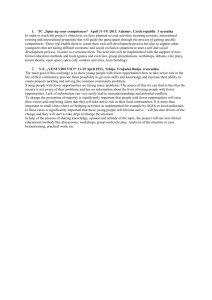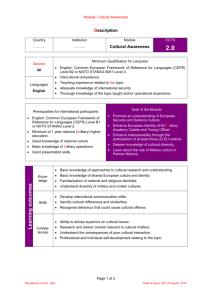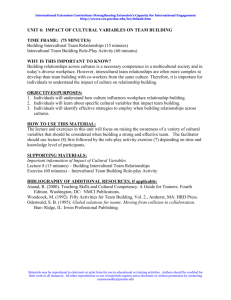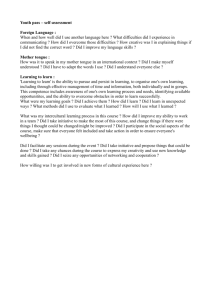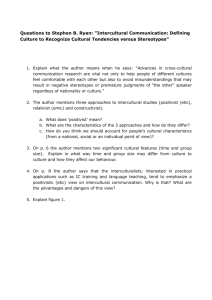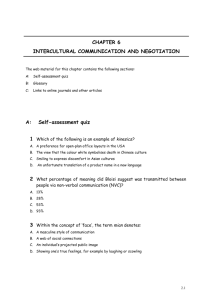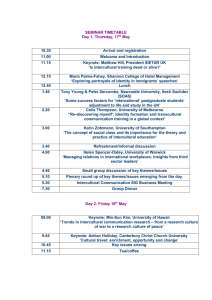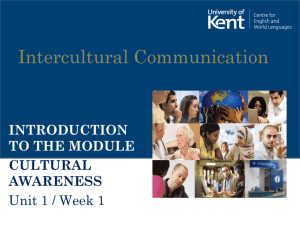Team teacher student diploma
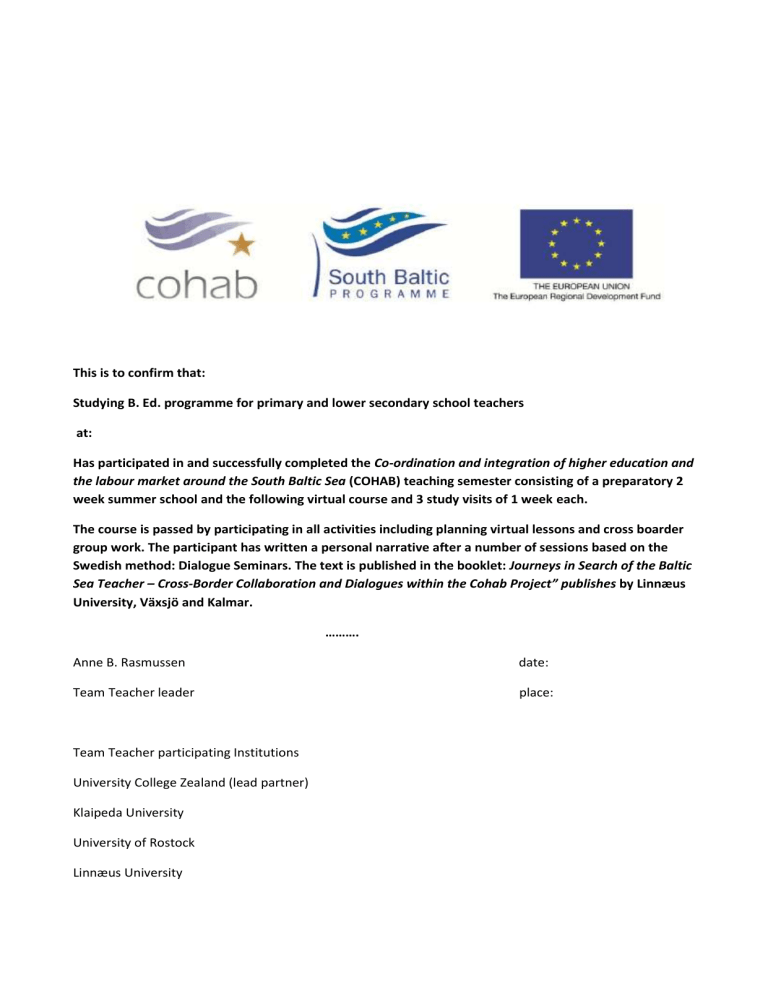
This is to confirm that:
Studying B. Ed. programme for primary and lower secondary school teachers
at:
Has participated in and successfully completed the Co-ordination and integration of higher education and
the labour market around the South Baltic Sea (COHAB) teaching semester consisting of a preparatory 2 week summer school and the following virtual course and 3 study visits of 1 week each.
The course is passed by participating in all activities including planning virtual lessons and cross boarder group work. The participant has written a personal narrative after a number of sessions based on the
Swedish method: Dialogue Seminars. The text is published in the booklet: Journeys in Search of the Baltic
Sea Teacher – Cross-Border Collaboration and Dialogues within the Cohab Project” publishes by Linnæus
University, Växsjö and Kalmar.
……….
Anne B. Rasmussen date:
Team Teacher leader place:
Team Teacher participating Institutions
University College Zealand (lead partner)
Klaipeda University
University of Rostock
Linnæus University
Content:
Imparted knowledge in:
• Modules A: Professional skills and mobility
• Modules B: Interregional communication
• Modules C: Culture and society
Focus on experimental work with virtual teaching and investigating communication tools for working in a
global classroom.
Gained competences and knowledge about:
Block A: apply basic skills in project management and conduct interviews within an international context
exemplify and reflect upon personal experiences of skill and learning in cross-border collaboration
develop skills to participate and contribute in intersubjective encounters such as dialogue seminars
independently and with some supervision write a personal narrative concerning professional skill and bridges and barriers for mobility
Block B: To develop an understanding of the concept of synchronous/asynchronous virtual teaching
& learning
To train and develop skills in managing a virtual classroom successfully and proficiency in using the technological equipment
Block C: To create an overview on theoretical approaches on culture, intercultural competences, intercultural learning and intercultural teamwork and to analyse Hofstede`s culture dimensions and
Thomas`s culture standards
To train and develop students for working in intercultural settings, being able to apply coping strategies and gaining sensitivity for conflict situations in intercultural teams
To train and develop skills to participate and contribute in inter-subjective encounters and dialogues with the purpose to identify differences in the way of working (in schools, the teaching and selfperception as teacher)
